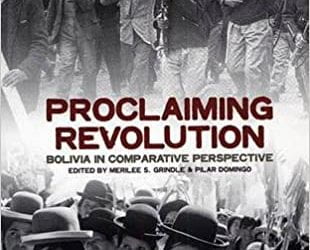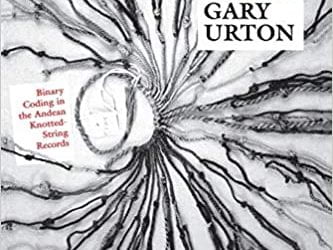Guest Introduction: Human Rights
The Responsibility of Us All
On my first visit to the Holocaust Museum in Washington DC, I received a copy of a passport of a young Polish boy. He had emigrated from Warsaw with his family, escaping the atrocities of the First World War. In the 1930s, all of them returned to their home and were exterminated during the Nazi occupation.
In the junta trials in my own country, Argentina, I met a woman whose parents were killed in the Nazi concentration camps. She wanted to have a peaceful life by emigrating to Argentina. Her sons were abducted and disappeared during the military dictatorship.
They were some of the many victims of the Argentine state’s horrific response to an unprecedented period of political violence. In the 1970s, guerrilla groups killed more than 800 people. Death squads killed hundreds more.
But since the 1976 coup d’etat, a criminal plan was implemented by the state. Members of the army and security agencies attacked the society they were supposed to protect. They used kidnappings and torture as undercover methods to investigate those they considered suspicious. Without a trial, they secretly assassinated more than 15,000 people and hid their bodies. The loss of life is the ultimate human rights abuse.
Citizens could not ask for state protection because the state was attacking them. That’s why they joined human rights groups and sought international support.
International pressure played a key role in stopping the killings. Many countries, as well as United Nations institutions, and especially the Inter American Commission of Human Rights within the Organization of American States as a result of its local inspections in 1979, generated attention to the Argentine tragedy.
International action also helped ensure that the criminals were both judges and punished. The information gathered by international organizations made it possible for the Argentine state prosecutor to pursue those responsible for the crimes, that is, military junta members. This is the principle of “complementarity”—the will to create a global institution respectful of the member states’ sovereignty.
The International Criminal Court (ICC) was created out of the recognition that certain crimes—because of their nature—affect the entire international community. National borders cannot confine the investigation and punishment of such crimes.
The time and effort dedicated to find an appropriate solution to this problem made it possible to create an International Criminal Court out of the principle of complementarity:
The primary responsibility to prevent, control and prosecute these atrocious crimes belongs to the states in whose jurisdictions they are committed. The principle of complementarity compels the prosecutor’s office to collaborate with national jurisdictions to help improve their efficiency—to help national jurisdictions fulfil their mission.
The International Criminal Court is intended to be global, but it is not yet universal. Civil society—and the Court itself—should deploy all efforts to enhance the Court’s acceptance and to attract the participation of those states that remain reluctant today.
So many divergent interests co-exist in the world today that there is not even consensus about the basic goal of punishing the authors of genocide. An international criminal court totally independent and impartial brings hope, but at the same time raises reasonable fears and misunderstandings.
There is a growing paradox in human rights: it must be national and international at the same time to be effective. The ICC is a case in point: it is independent and interdependent at the same time. It cannot act alone. It will achieve efficiency only if it works closely with other members of the international community.
Individual states will necessarily continue to play an active role so that the Court can enhance the wide support that it enjoys today and achieve universal participation. Whenever there is genuine state action, the Court cannot and will not intervene.
However, the responsibility for making sure that human rights are not abused lies not only with individual states and the international organizations. Business, and multinational companies in particular, must understand their own enlightened self-interest requires them to improve, respect and defend human rights, peace, and social justice, and to work against violence. In the long run, there can be no successful companies in failing societies.
The media can also contribute to prevent conflict and crimes by exposing injustice and violence, not only when they have already escalated into massive atrocities but also in the emerging stages. Genocide and crimes against humanity are often preceded by a long period of preparation. Too often the media and therefore the people ignore or deny the danger.
We must learn the lesson: there is no safe haven for life and freedom if we fail to protect the rights of any person in any country of the world.
Fall 2003, Volume III, Number 1
Luis Moreno Ocampo is the Chief Prosecutor of the International Criminal Court. He was Robert F. Kennedy’s visiting professor at Harvard Law School (2003) and visiting professor at Stanford University( 2002). He was the assistant prosecutor in the trials of the Argentine military junta (1985), the Chief of Buenos Aires Police (1986), and Prosecutor in the Malvinas-Falkland military trial (1988) and in two military rebellions (1988-91). He was the founder and president of the Argentine civil society organization, Poder Ciudadano, as well as President of Transparency International for Latin America and the Caribbean.
Related Articles
Proclaiming Revolution
In April of 1952, Bolivia, an obscure, landlocked, country with a mining economy and an impoverished indigenous majority in the heart of South America jumped to the front pages of…
Poéticas del flujo
osé Antonio Mazzotti, in his second book, Poéticas del flujo. Migración y violencia verbales, identifies the different trends in 1980s Peruvian poetry. With characteristic flexibility and a wide…
Signs of the Inka Khipu
How people know things is as important for study as is what they know. Facts do not exist without a system of thought. How facts become facts, the basic units of knowledge, is crucial to…




